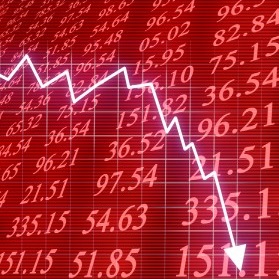The National Bureau of Statistics (NBS) has disclosed that Nigeria recorded a negative trade balance of N104 billion in third quarter of this year.
NBS, which newly released the data in its ‘3rd Quarter 2016 External Trade News: Trade Intensity Index/Re-Exports Analysis’, put the total value of Nigeria’s external trade in the third quarter at N 4.721.9 trillion. It pointed out that the figures consisted of exports worth N2.309 trillion and imports worth N2.413 trillion, indicating a slight negative trade balance of N104 billion.
Giving a breakdown, it noted that, “As in previous quarters, the sector, which contributed the most to total trade was crude oil, which was all for exports,” stating that, “In total this sector accounted for N1,944 billion, or 41.2per cent of the total trade in the third quarter of 2016.”
“The manufacturing sector had the second largest share of total trade, accounting for N1,218.3 billion or 25.8per cent of the total, but in contrast to Crude Oil, was dominated by imports. Other Oil products was also a prominent sector, and accounted for N1,029.4 billion, or 21.8per cent of the total. The remaining sectors were a relatively small proportion of total trade. Raw Materials accounted for 6.37per cent of the total, Agriculture accounted for 4.43per cent, Solid minerals accounted for 0.43per cent, and trade in Energy goods was negligible at N0.1 billion,” it added.
On the export intensity index with major trading partners, the statistical agency explained that, the index “compares the share of exports to each country in Nigeria’s total exports, with the share of world exports going to that country, and therefore gives a measure of the importance of that country to Nigeria as an export destination.”
Accordingly, it noted that, “A higher number denotes a stronger relationship, and an index of one indicates that exports to that country are what would be expected given global trade patterns. In quarter three, Nigeria had a particularly strong export relationship with India, with export intensities of 5.6, 8.3 and 3.9 July, August and September respectively.
“Spain was also a key export market with intensities of 3.6, 4.4 and 1.9 during the same months. Despite more exports going to the US than Spain, this was due to the importance of the US as a global market, and the country nevertheless had lower intensities, of 1.2, 0.7 and 0.9 . France and the Netherlands were the other two largest export destinations, and recorded intensities of 0.8, 3.6 and 0.6 for France, and 1.1, 1.8 and 0.9 for the Netherlands.
As for the import intensity index with major trading partners, the NBS noted that, “This index mirrors the export intensity index, and measures the importance of Nigeria as an export destination for other countries. “
According to the agency, “Nigeria’s major trading partners in terms of import were China, Belgium, Netherlands, United States and India. During the quarter, the import intensity of Nigeria with China was 1.09, for July 1.08 for August and 0.65 for September.
These figures, it explained, were around one, and therefore indicated that China’s exports to Nigeria reflected the global share of imports accounted for by Nigeria.
“By contrast, Belgium – the next leading consumer of Nigeria’s products – showed high import intensities with Nigeria, of 4.35, 3.54 and 2.19 for the months July to September, denoting a stronger relationship. The Country’s import intensities were also high with India (2.57, 2.49 and 1.28) and the Netherlands (4.38, 2.57 and 1.04) during the same months.
“However, the import intensity of Nigeria with United States and Spain were lower, with indices less than one other than for Spain in August. This is possibly a result of the mix of products imported from these countries, which may have been affected more by the CBN import regulations,” it added.
Besides, in terms of the major import partners, NBS stated that, “As in previous quarters, the country that Nigeria imported the most goods from in the third quarter of 2016 was China. In total, China accounted for N478.7 billion, or 19.8 per cent of total imports.”
Nevertheless, it added, “this is a lower share of total imports than the country accounted for in the previous quarter.”
“Belgium and the Netherlands were the next most important import partners, and accounted for N331.1 billion (13.7 per cent) and N299.7 billion (12.4 per cent) respectively. They were followed by USA, India and France, which recorded N165.5 billion (6.86 per cent), N121.3 billion (5.03 per cent) and N91.3 (3.78 per cent) respectively,” it pointed out.

